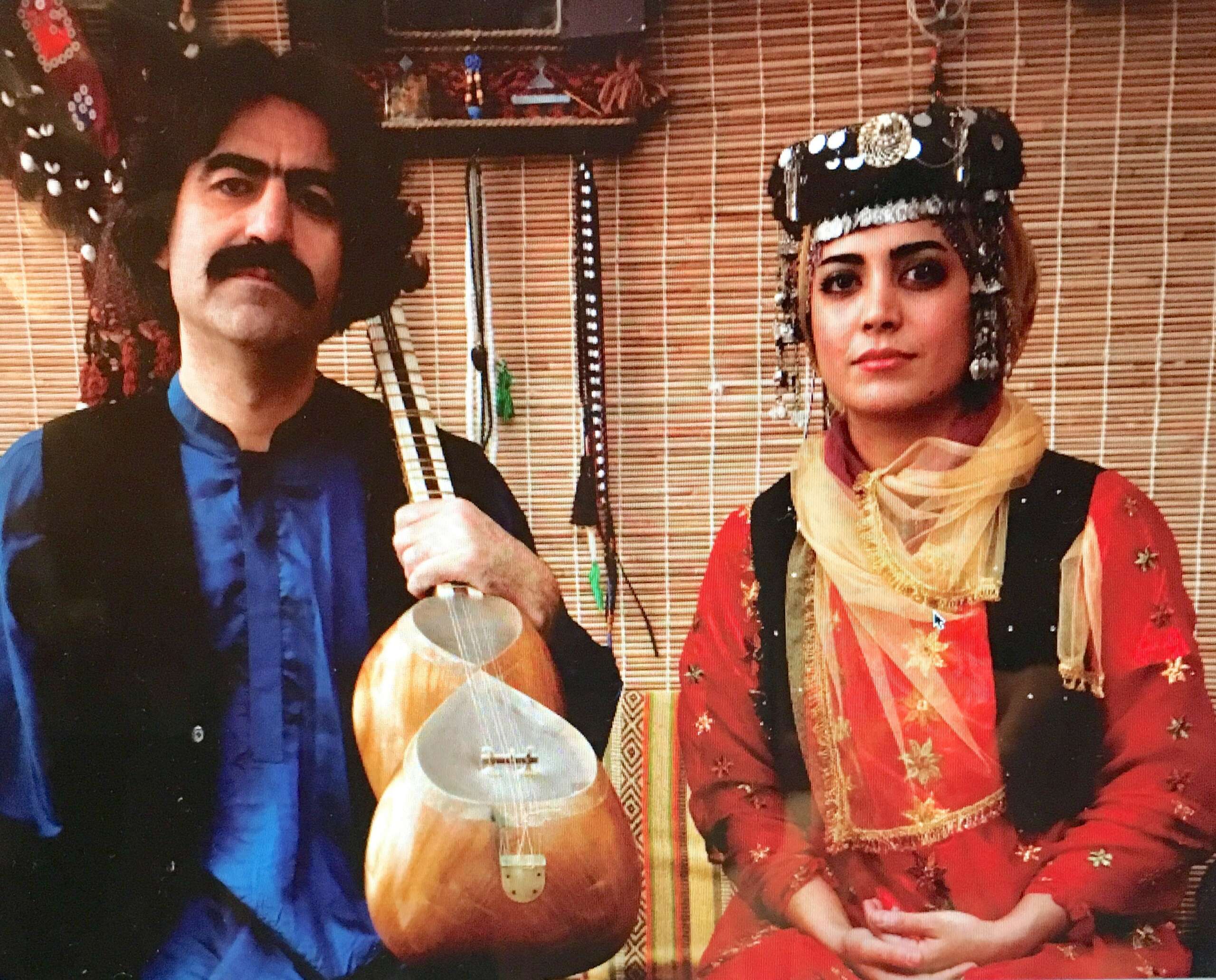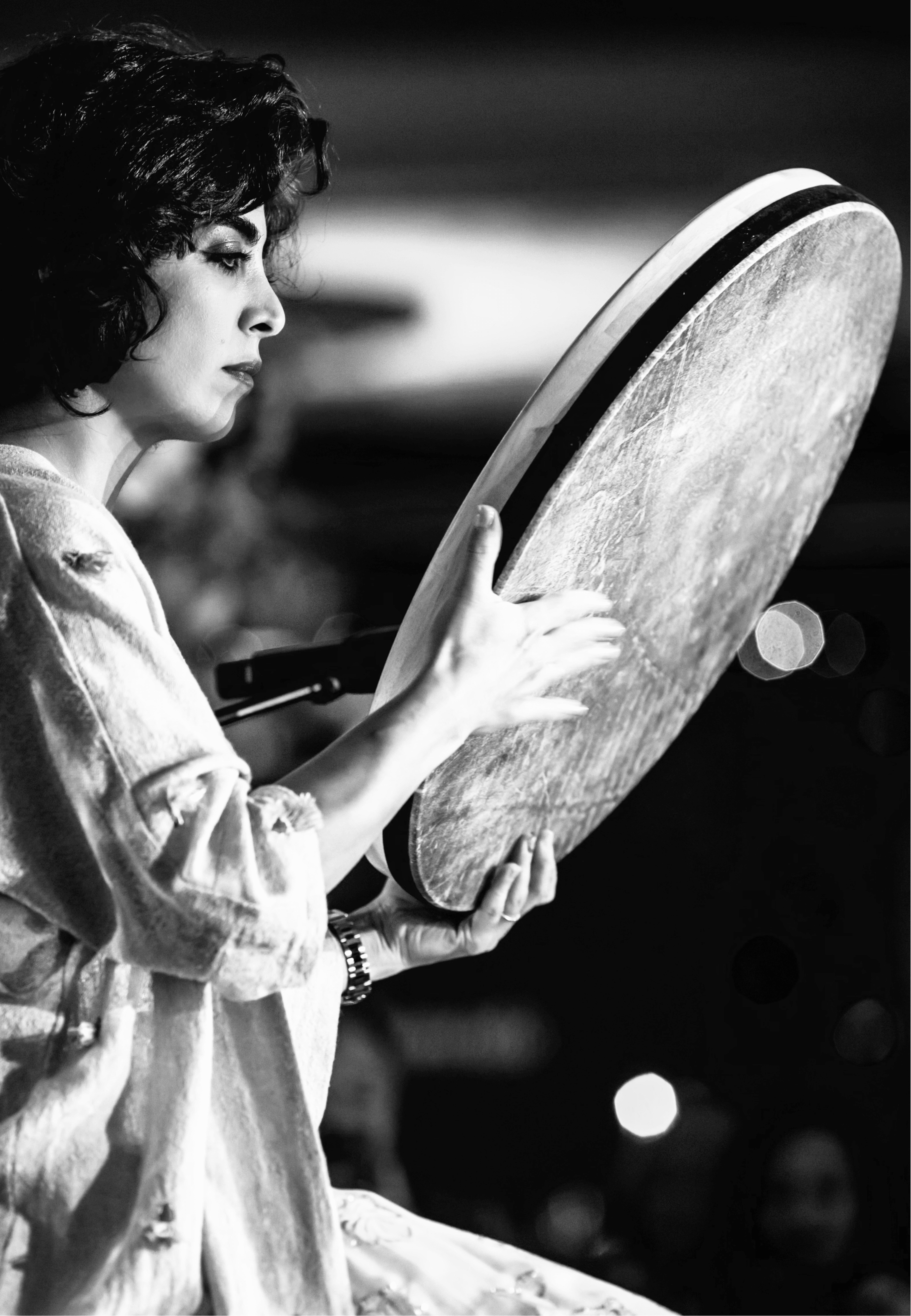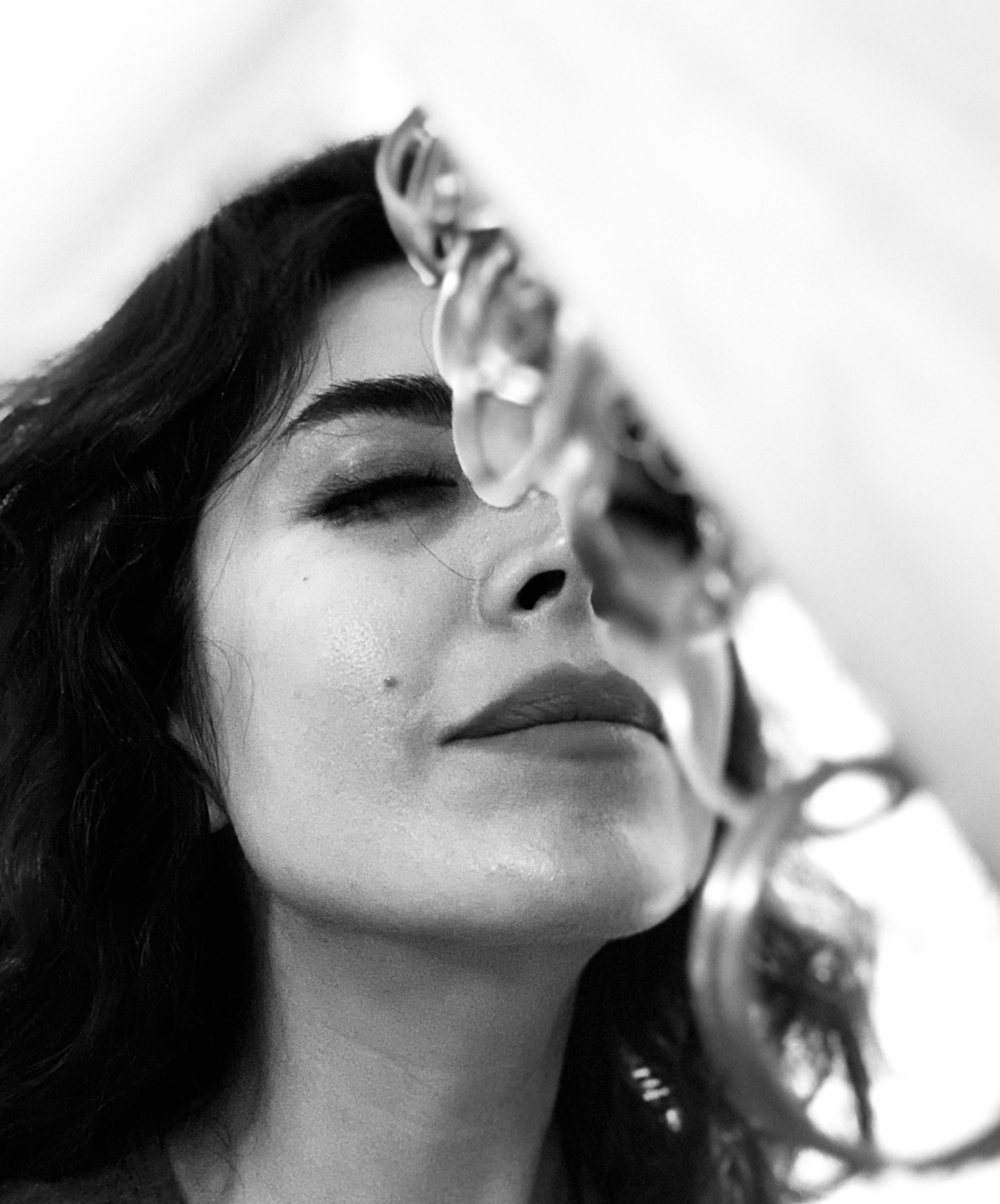We caught up with the brilliant and insightful Golnaz Khazei a few weeks ago and have shared our conversation below.
Golnaz, thanks for taking the time to share your stories with us today When did you first know you wanted to pursue a creative/artistic path professionally?
Since childhood, I was a child who would get lost in my own dreams, creativity, and stories, spending hours each day living in that imaginative world. It went so far that if two people were standing in front of me and my mother later asked, “Golnaz, what color was that man’s shirt?” I would confidently and firmly tell her that I hadn’t seen any man at all. This was why my mother decided to enroll me in music classes at the age of nine, hoping it might help me pay more attention to the real world and develop focus. Of course, it started there, but the philosophy that formed in my mind at the age of fifteen ultimately defined my path in art.
I distinctly remember that at the age of fifteen, I realized that art and music, especially music, were the only ways for me to freely think about everything I loved and dream about everything I desired.
In that moment, I realized that in the art of music, no sound that is heard can be wrong, and no melody that is played can lead to a false path. Music is the only human language that always brings people together and carries nothing else with it.
Gradually, as I learned more about music and studied art, I became increasingly happy with the path I had chosen. The further I progressed, the more I understood the profound connection that music creates between people of different languages, countries, and cultures. I also realized that even my solitude could be filled with sound. Music became my friend. Music became my life. Music became my philosophy.
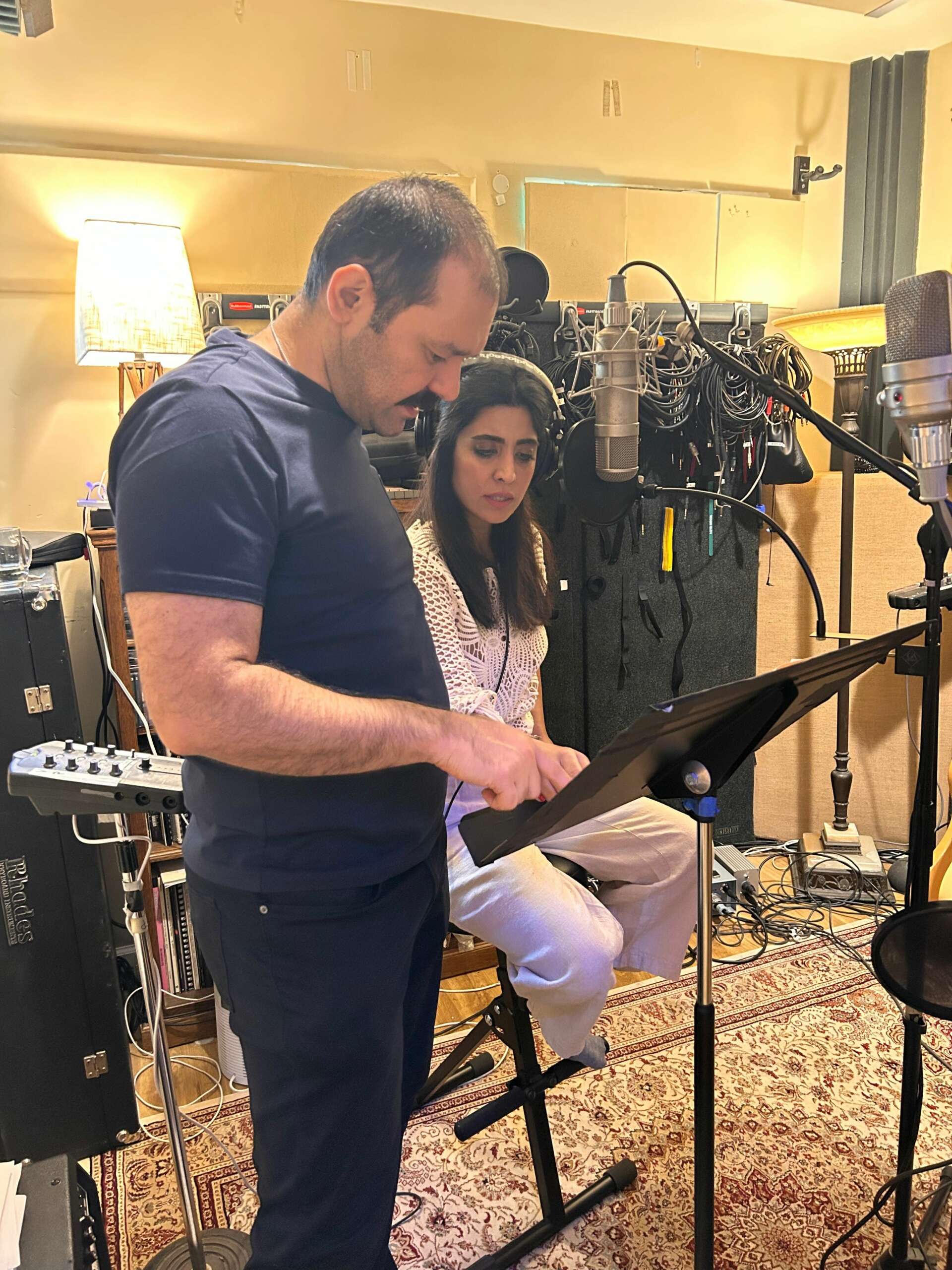
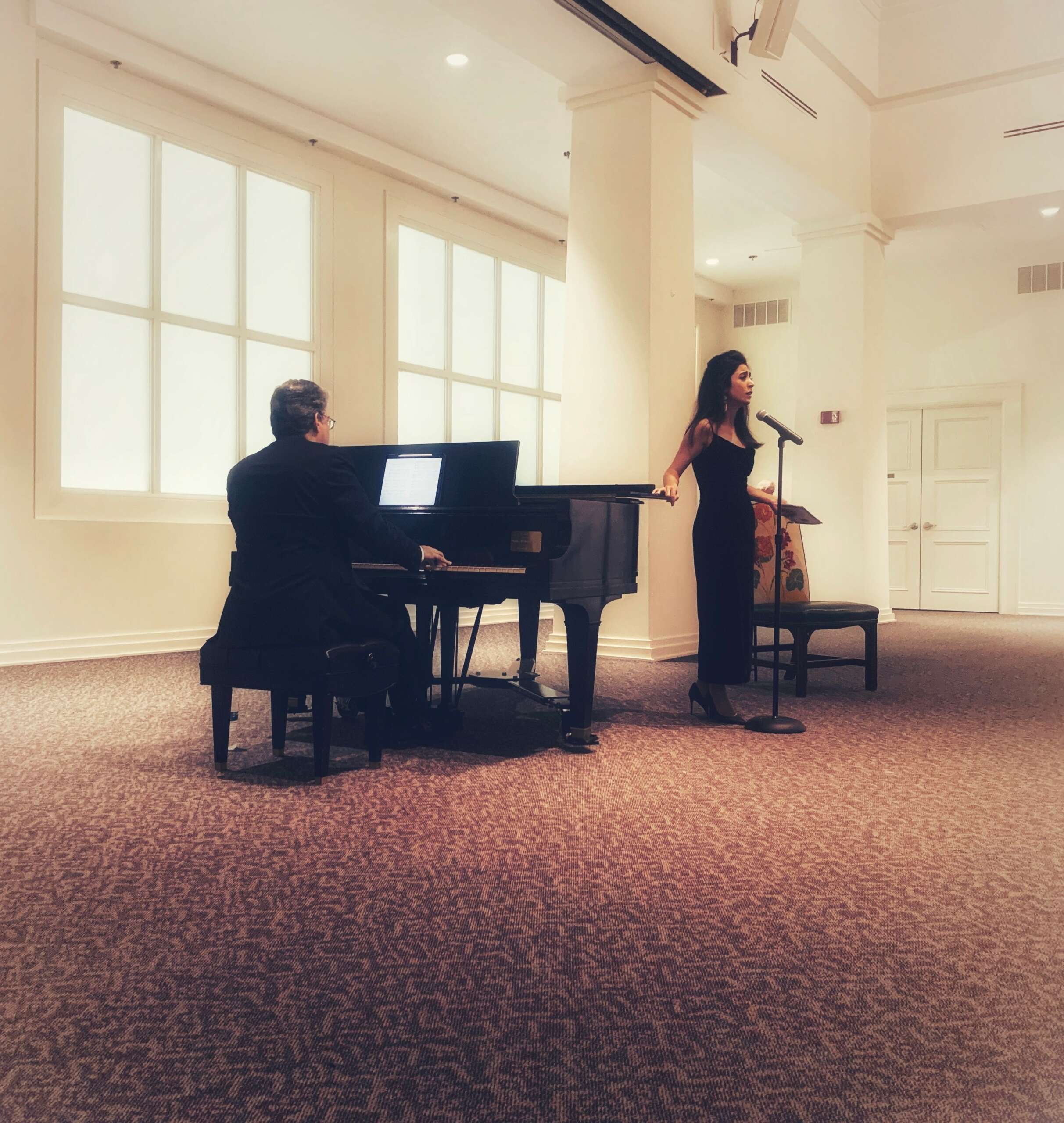
Great, appreciate you sharing that with us. Before we ask you to share more of your insights, can you take a moment to introduce yourself and how you got to where you are today to our readers.
Golnaz Khazei is a native of Tehran ,Iran and is a renowned percussionist specializing in the instrument of Daf. Golnaz has performed concerts and collegiate workshops, individually and with divers performers throughout Iran, United State as well internationally in Armenia, Germany, Spain, Italy, Estonia, Switzerland, Netherlands, Belgium.
Golnaz has worked and performed with the legendary. Kurdish folk lore master, Khalife Mirza Agha Ghosi, Mehrdad Karim Khavari and Alireza Feyz Bashipoor.
In 2020 Golnaz and Faraz Minooei collaborated and co/founded C-Sharp International, LLC (www.csharp-int.com) for the preservation and growth of classical Persian Music.
In 2022 Golnaz and Faraz published their first Album ” BARA” (composed by Faraz Minooei).
Golnaz has also performed in the following Albums:
1. Bigah
2. Naghshe Khial
3. Ab Nan Avaz
4. Colorful Garment
5. Bara
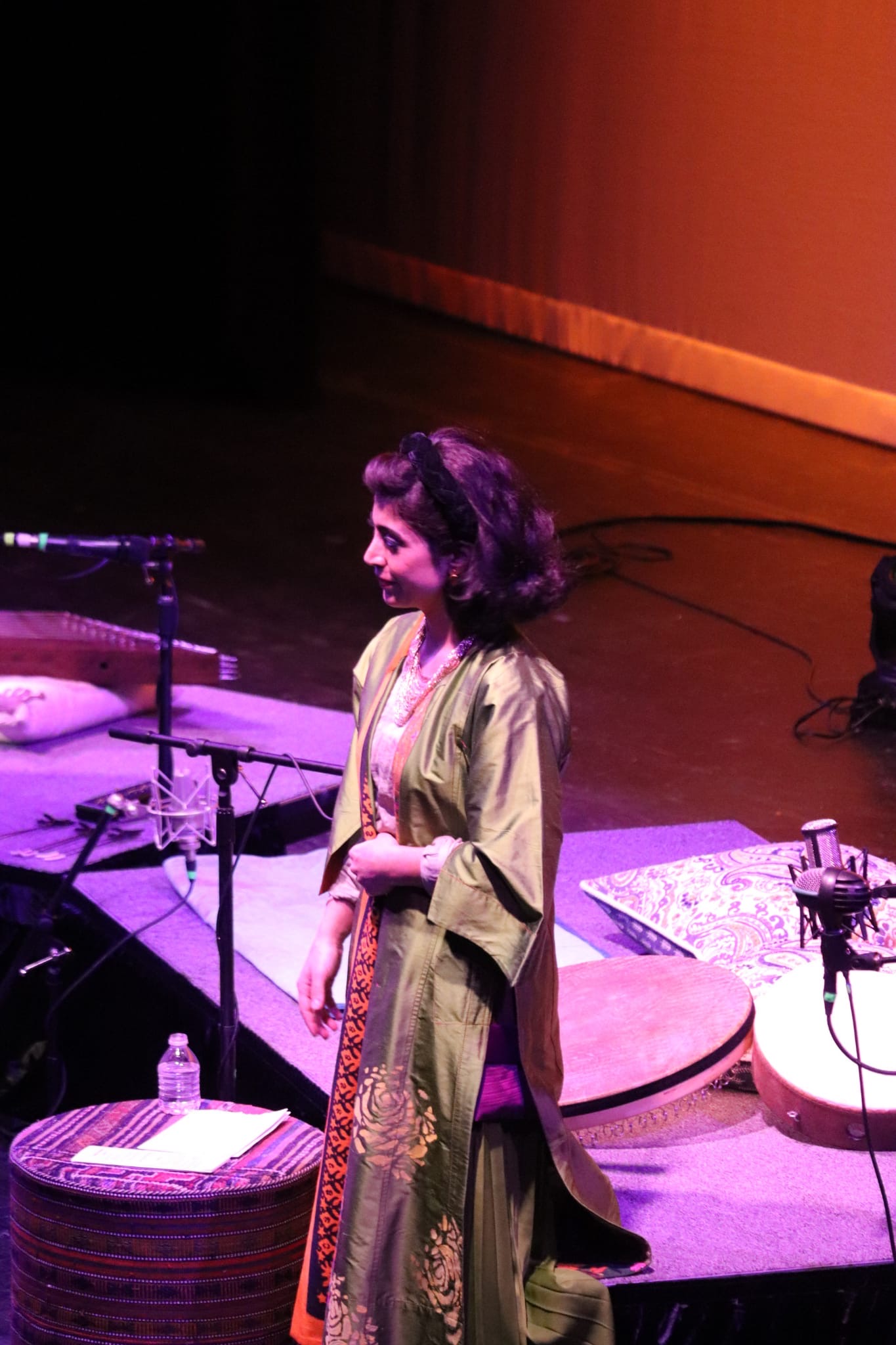
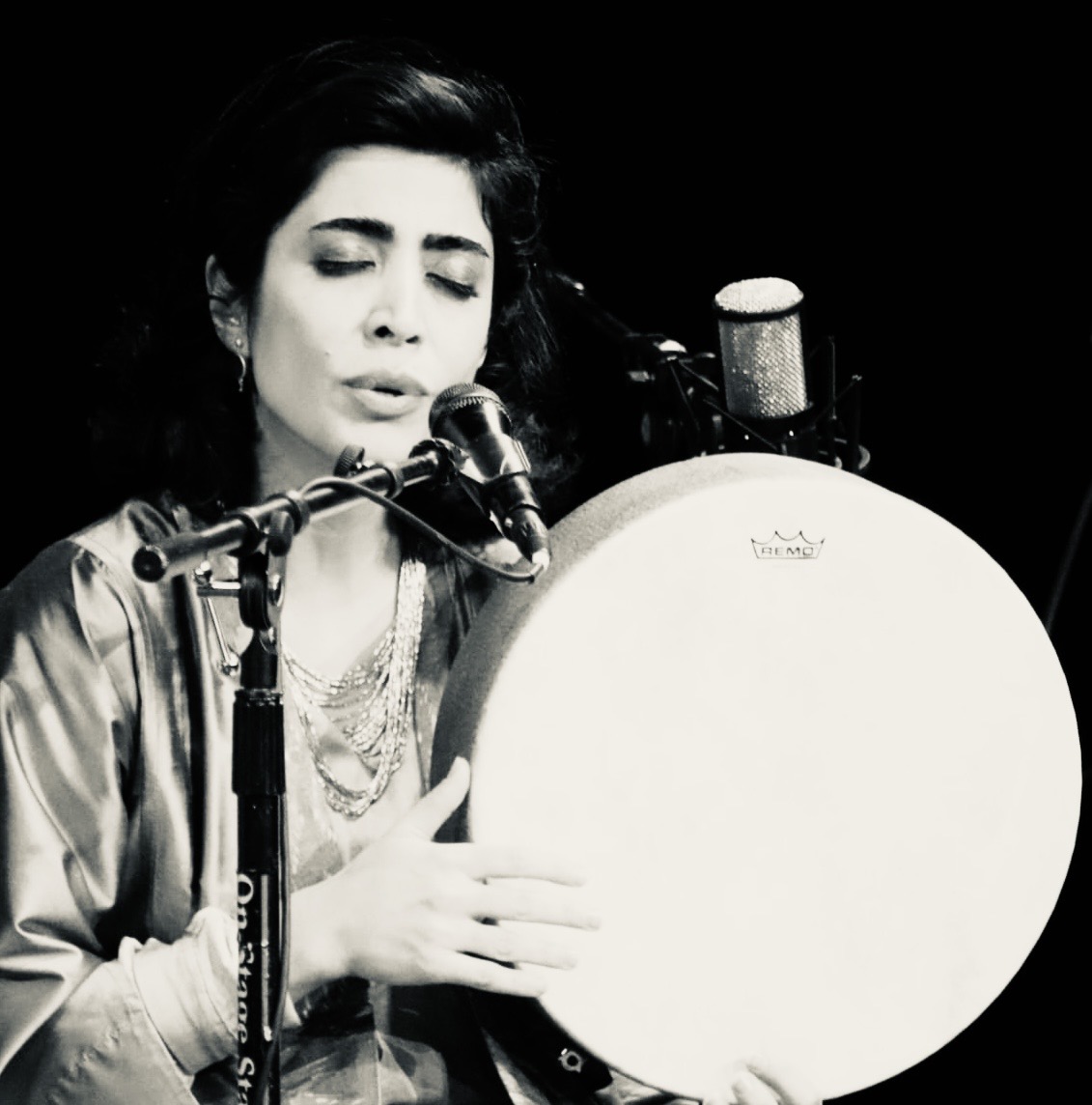
Can you share a story from your journey that illustrates your resilience?
I vividly remember that at the age of 19, I won the first round of Iran’s Daf Festival. The festival was held in the city of Kerman. With the support of my mother, father, and dear brother Gorgin , I traveled to Kerman. When I arrived at the hotel, I saw a crowd of men and women, boys and girls, with various instruments in the hotel lobby.
Two days later was the competition day for daf players. They told us to be in the hall at 8 a.m. and settle backstage. They were asked to write our names on a piece of paper to determine the order in which each participant would perform.
When I opened the backstage door, I saw around forty to fifty Kurdish men holding their daf drums. They were all staring at me in shock, and I was staring back at them in equal surprise. Yes, I was the only female daf player there.
After two minutes of silence, suddenly, a burst of laughter erupted from the room. Whispering and murmuring followed, as all the other participants laughed and mocked me, saying things like, “Wow, what incredible confidence she must have to come here!” or “She doesn’t even know why she’s here.” Some even said, “Poor girl, by the end of the day, she’ll go back to her room crying.” And I listened, and I listened, and I listened.
My knees and hands were trembling—trembling so much. Tears welled up in my eyes, and I tried to push them back toward my throat. For a moment, I thought about leaving the place and returning to the hotel. I had barely taken a few steps when I remembered the sacrifices my parents had made for me. I told myself, “They are sitting in the hall, waiting for me.” So, I turned back.
I quickly went toward the list of names and tried to write my name as the first performer so I could finish my turn quickly and leave that uncomfortable atmosphere to return to the hotel. I wrote my name first and then sat in a corner, waiting for my performance to start.
A few boys approached me and asked for my name and where I was from. I said, “My name is Golnaz, and I am come from Tehran.” All three of them burst out laughing and said, “Wow, you really shouldn’t have come!” and then laughed again before walking away. I lowered my head and made a promise to myself: I would neither look at them again nor listen to or respond to their words or questions.
After sitting there for about half an hour, a woman entered the room and asked, “Have all the performers written their names on the list?” Everyone shouted, “Yes!” She took the list, looked at it, and said, “The first performer, Ms. Golnaz Khazaei, please be ready. I will come for you in ten minutes to prepare for the competition.” Those ten minutes felt like an entire year to me. When I saw that woman again, it felt as though I was flying like a bird into the sky. The joy of finally leaving that room brought a spark to my eyes. I took her hand and walked with her toward the stage. She said, “Good luck,” and I stepped onto the stage.
In the hall, there was a sea of local people, musicians from different cities, and the panel of judges seated in the front row. I tried to find my brother among the crowd, hoping that looking into his eyes would bring me some calm before I started playing. As I anxiously scanned the audience, suddenly, my brother raised his hand as if he knew I was searching for him. I saw him, gave a slight smile, closed my eyes, and began to play.
Each performer had five minutes to showcase everything they had learned, everything they knew, and everything they wanted to express. I closed my eyes. I closed my eyes and played, thinking of the sacrifices my parents had made for me. I closed my eyes and played, remembering the people in Kurdistan, in small villages, playing music, laughing, and dancing. I closed my eyes. I closed my eyes and played with all my strength because music was everything I had.
When I opened my eyes, the red light on the stage turned on immediately, signaling that my time was up. I gently placed the daf on the chair next to me, and suddenly, the hall erupted with applause so loud that my tears broke free. I bowed, left the stage, and ran straight to my parents and brother. I hugged them tightly and said, “I want to go back to the hotel. I don’t want to stay here.” I only remember that when I opened my eyes, it was morning. I quickly got ready and went to the hotel lobby. I wanted to see what had happened yesterday and how the other participants were doing. When I went downstairs, it was crowded. The musicians were talking to each other in the lobby. People were coming and going. Some were drinking tea. Suddenly, two men and a woman came towards me and said, “Oh, come, come. I think we’ve found her.” The woman said to me, “Where are you from? It seems like you play very well. They say you might win a prize.” I looked at them with surprise and said, “Are you talking about me?” One of the men said, “Aren’t you the only woman who plays the daf?” I said, “Yes.” He replied, “Yes, we’ve heard that you’re very good, and there’s a possibility that you’ll win a prize.” I quickly made my way towards the judges’ room. I saw all the judges sitting in their positions, talking to each other. Some of the guys who were participants and played the daf were standing by the door. I asked several times what had happened. They looked at me and said, “The news is about you.” They seemed upset. I asked, “What’s wrong?” They replied, “They want to give you a prize. Some of the judges are saying you played very well and are qualified to win first place.” This seems crazy. “How are we supposed to go back to our wives and tell our fathers that we were defeated by a girl?” I looked at them angrily and said, “Well, I’m glad I’m going to win first place. It will make me feel better knowing that you’ll go home and cry in front of your fathers.” I laughed at them and stood a little further by the door. After about an hour, the judges came out, and I asked one of them, “Hello, Maestro, what happened? Did I win a prize? When will we know the results?” He smiled and said, “You played very well, my daughter, well done. The results will be announced two days later. We need to wait for all the musicians with different instruments and categories to finish their performances. Only then will we know.” God knows what those two days were like for me. Two days later, I sat in the hall, my eyes wide with shock, watching the stage, waiting for the announcement of the daf players’ results. They said, “There is no first place. No one qualified to take the first place.” “Second place, Golnaz Khazaei.” “Third place, Shoresh Keykhast Roy.” I heard my name, but for some reason, I couldn’t get up from my seat. My mother clapped with joy. Everyone was clapping. She told me, “Get up, get up, go up and receive your award.” I went up, thanked all the judges, took my certificate, and returned to my seat. I couldn’t believe it, I couldn’t believe that I had won a prize. I was so happy. After sitting for a while, I left the hall, went outside, distanced myself from the crowd a bit, and let out a very loud scream, crying and crying and crying. The next morning, we were getting ready to return to Tehran. I saw three of the judges in the lobby. They hugged me and kissed my forehead. They said, “We couldn’t announce you as first place because of cultural, artistic, and local issues. But in your heart, know that you were first here.” As I was heading towards the exit door, I saw five or six of the young guys. It seemed like they were waiting for me. From a distance, they started shaking hands, and when I got closer, they all gathered around me. Two of the guys hugged me and said, “Forgive us if we hurt you. You are our sister and a female musician of our country.” We clasped our hands together and promised each other that we would never again make our daughters cry or bring sadness to the eyes of our sons through injustice. Twenty years have passed since that promise. It seemed like Golnaz had to go, and they would laugh, so that a better culture could emerge for my country.
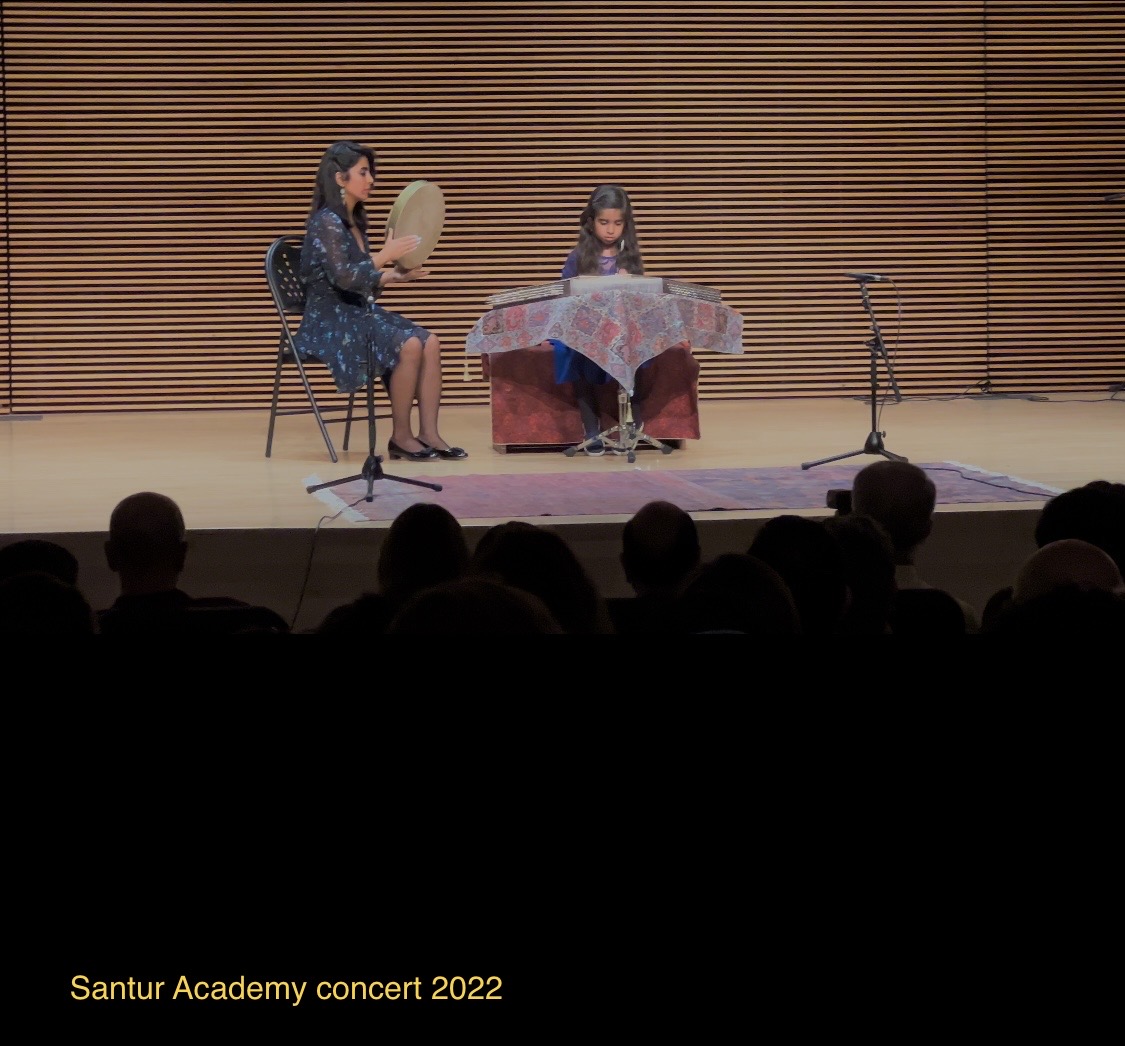
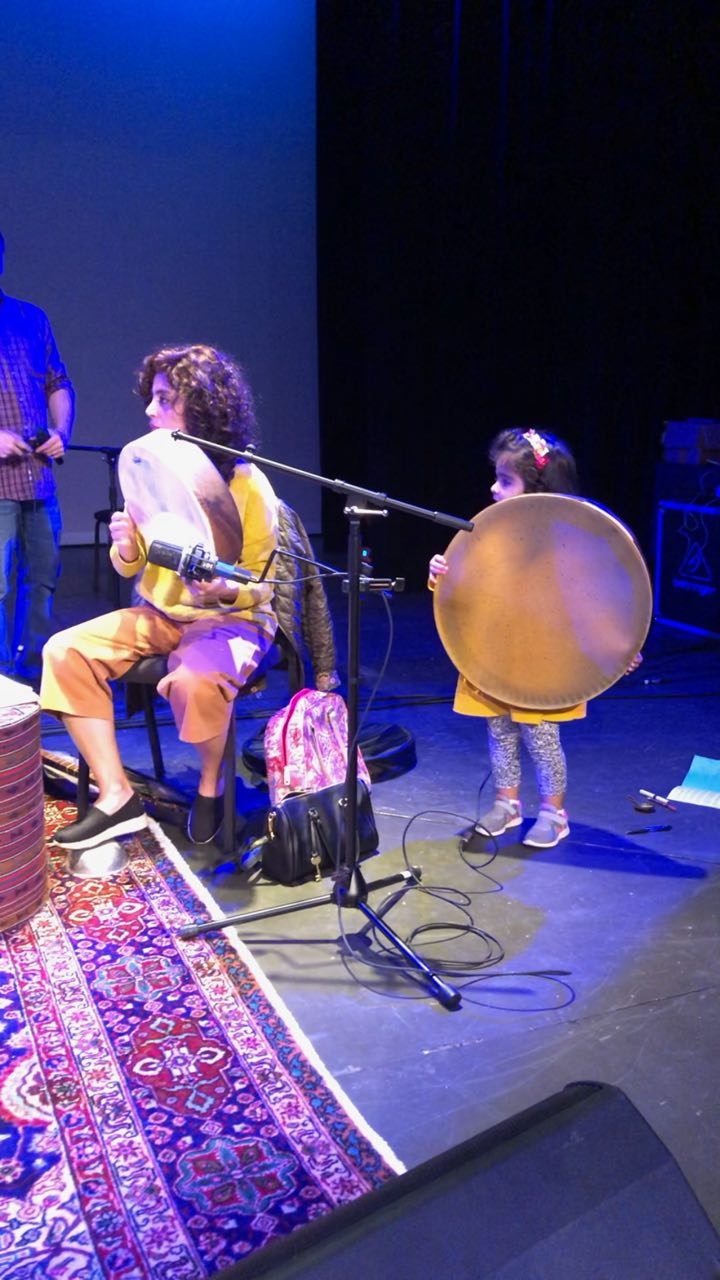
Are there any books, videos, essays or other resources that have significantly impacted your management and entrepreneurial thinking and philosophy?
Regarding your question, well, like everyone else, I follow certain philosophies in life, as well as articles, videos, and works of renowned and favorite artists that can influence me. Just like anyone who has their own bookshelf filled with books, philosophies, and favorite figures, I also have mine. However, what I can say, and what I deeply regret not focusing on more, is reading history. Learning about the history of my own country and culture, as well as world history, is incredibly important. The more you know about history, the more your perspective on the world changes. Understanding history and knowing what people have done in the past has had a significant impact on me as a musician, shaping my work. It also has the potential to profoundly change my thinking and philosophy. That’s why I would say that reading history is the most important thing right now that can help me immensely and have a significant impact on my journey.
Also,Having good and caring friends, as well as a family that trusts and supports you in your work, is very important. My dear friend and colleague, Faraz Minooei, and his lovely wife, Lida, as well as my husband, Behrouz and my little daughter, Sofia have always supported me in everything I wanted to do. I believe that the support of good friends and family plays a major role in making any path you pursue easier.
Contact Info:
- Website: https://www.golnaz-khazei.com/blank-1
- Instagram: Golnaz khazei
- Facebook: Golnaz khazei
- Youtube: Golnaz khazei
